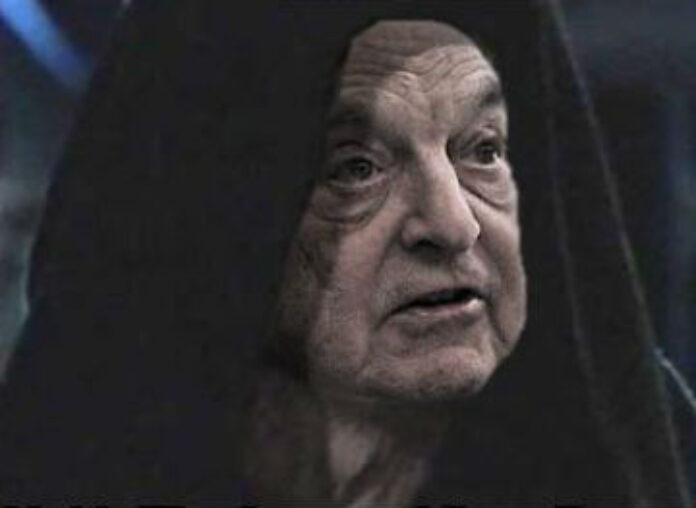‘The devaluation of sterling in September 1992 didn’t do the UK economy any harm, far from it. Nor would a fall in the pound this time necessarily be a disaster. The key difference between now and 1992 is that today the pound is floating and any devaluation could be self-correcting and temporary.’
-
Leaving the Exchange Rate Mechanism in 1992 was a boon for the British economy.
-
Unlike at the time of Black Wednesday, the pound is today a floating currency.
-
Soros supported the euro and British entry into it, despite knowing of its manifest flaws when it was set up.
-
Soros has consistently called for further EU integration, including for the abolition of Britain’s ability to make asylum and immigration policy and the UK’s border controls.
Leaving the Exchange Rate Mechanism in 1992 was a boon for the British economy.
Following Black Wednesday, the pound fell from 2.002 $/£ on 16 September 1992 to 1.474 $/£ on 25 March 1993.
Far from leading to a spike in inflation, leaving the ERM led to a reduction in inflation. Inflation in the third quarter of 1992 was 3.3%. This was not exceeded until the second quarter of 2008.
Following its exit from the ERM in September 1992, the UK enjoyed uninterrupted growth until the third quarter of 2008.
Far from leading to a rise in interest rates, leaving the ERM saw interest rates fall. On 16 September 1992, the Bank of England official rate was 9.875%. It has not exceeded this rate since then.
Unlike at the time of Black Wednesday, the pound is today a floating currency.
As part of the Exchange Rate Mechanism, the value of the pound was tied to the value of the Deutschmark, with a floor of 2.78 DM/£.
The British Government tried to keep the pound at its ERM floor. It was this which allowed Soros to make a $1 billion profit at the UK’s expense betting against sterling in the run up to ‘Black Wednesday’.
Soros supported the euro and British entry into it, despite knowing of its manifest flaws when it was set up.
When asked whether: ‘you’re discouraged about the mechanism that’s in place now but you do believe in the ultimate goal, which would be a single currency for all of Europe?’, George Soros replied: ‘Very much so’.
‘George Soros, the financier, yesterday warned that Britain would suffer damage “in the long run” if it stayed outside the single currency. Speaking in Davos, Mr Soros said that, while there was good reason for Britain to delay entry into monetary union, it could not stay outside permanently without repercussions for inward investment’.
‘In the face of such international financial instability, Soros regards the euro as a “highly desirable arrangement” and a potential financial anchor – part of the solution rather than part of the problem’.
George Soros has said that the euro was ‘a very desirable political project’. Nonetheless, he knew in 1999 that it was institutionally flawed, stating that there were ‘internal tensions inherent in a common currency without a common fiscal policy’.
Soros has consistently called for further EU integration, including for the abolition of Britain’s ability to make asylum and immigration policy and the UK’s border controls.
Soros is a noted supporter of the transfer of further control to the EU. Last year, he said: ‘As it pursues one integrated migration and asylum policy, the EU should eliminate the waste and redundancy of 28 parallel systems. There should be a single European asylum and migration agency, for example, that processes asylum applications for the entire union. Eventually, a joint border guard should be established too’.





